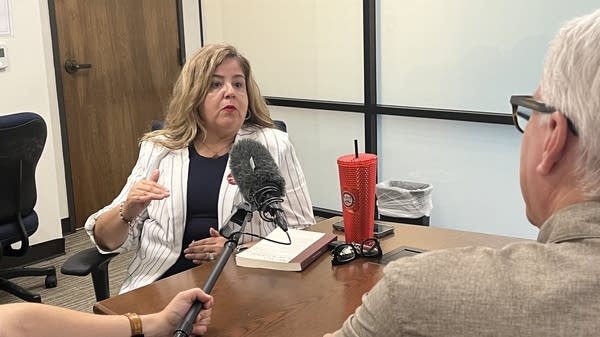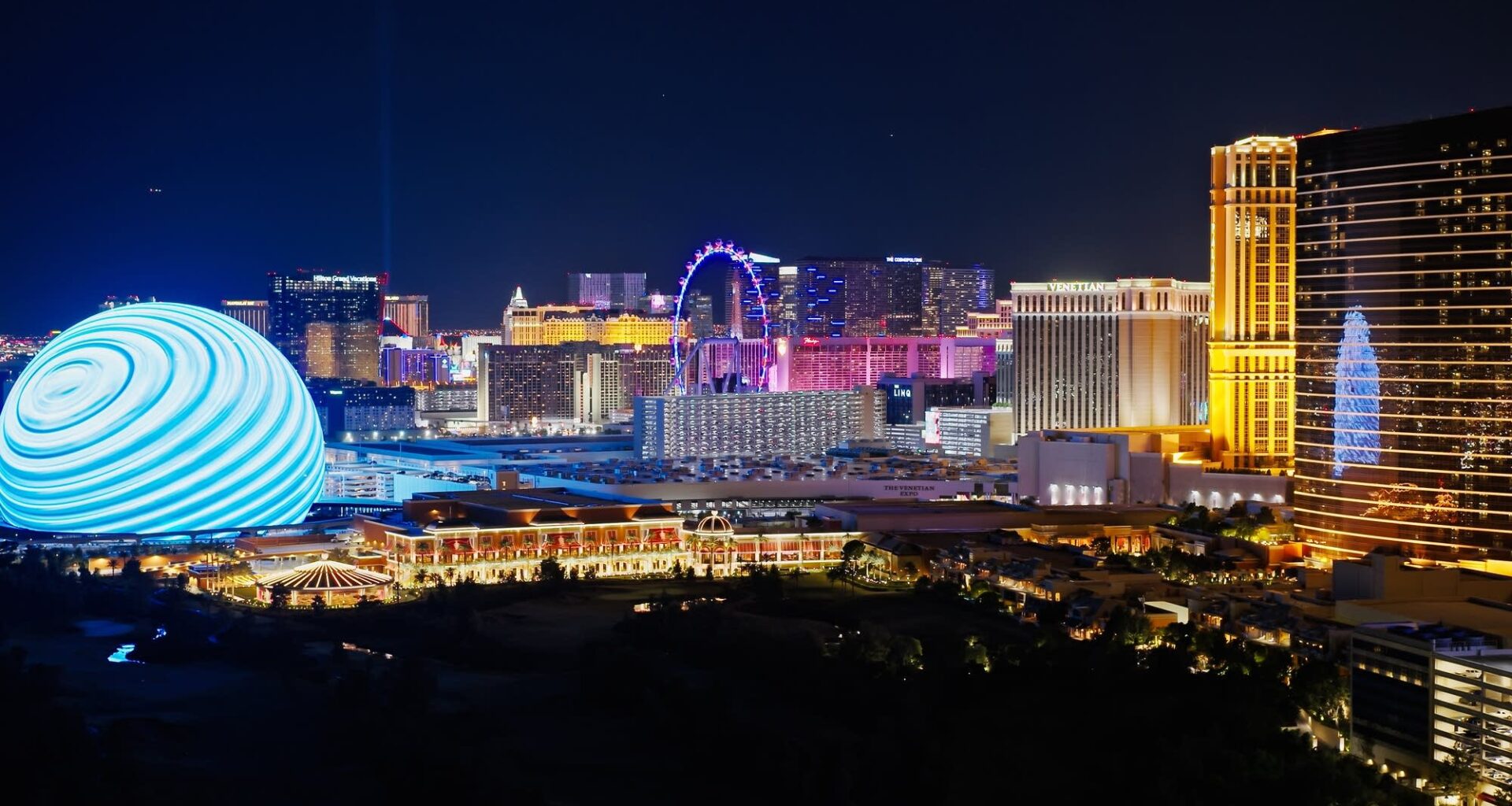The travel and tourism industry contributes $2.9 trillion to the U.S. economy, bigger even than the size of the automotive industry. But can travel and tourism thrive at a time when the U.S. is working to overhaul border and trade policy?
Las Vegas, Nevada, had been a red-hot spot for travel and tourism in America, but, right now, the economy there is being dealt some tough hands.
Take dinner time on a weeknight, for example. There are, to be sure, cars at the stoplights near the corner of corners: Las Vegas Boulevard and Flamingo Road. But traffic’s a breeze. Next month, a big Formula One event should bring a surge of racing fans.
And since it’s Vegas, you’ll always find some hubbub.
“I’m a big TikTok person,” said Ashley, from Toledo, Ohio. “So everything says it’s going to be dead here. It’s a dying city. And we’re like … it’s not that dead.”
So not totally empty, but using the August figures, the number of visitors is down 6.7% from a year earlier. And under the video canopy covering Fremont Street downtown, foot traffic is also sparse. Leah and Claes are part of a Dutch and Belgian tour group out sipping refreshment. They came, but, “some people of our group, they skipped the trip because the situation here in the U.S.,” Leah said.
That situation being hardened borders and a global trade war, along with higher fees to come into the U.S. and other restrictions for people without U.S. passports. For instance, the early fall has typically been prime time for people from Mexico and points South to come. But this time, many Latin-themed events got canceled. As for that other part of North America President Donald Trump talks of adding to the United States?
“Canada’s down, probably the most significant of anyone, by some measures, down 30% over where they were a year or two ago,” said Jeremy Aguero at Applied Analysis. “But Canadians make up about 3% to 3.5% of all the visitors that come to Las Vegas. So, you know, at the end of the day, it’s an impact.”
Among the down spots are what people here call “the three Cs”: visitors from Canada; China, with its property market mess hitting disposable incomes there; and, one more “C.” Not a country but the adjacent state.
“People from California,” said Diana Valles, president of the Culinary Workers Union Local 226 in Las Vegas, Nevada. “And with all these raids and deportation and all these anti-immigrant messages that are going on right now, people — they don’t feel good coming in here. They’re fearful.”

Diana Valles, president of the Culinary Workers Union Local 226.
Alex Schroeder/Marketplace
“We’re seeing layoffs,” she added. “We’re seeing restaurant closures. People are nervous just to, like, go to the grocery store. Yeah, the people are nervous just to go to church. Even if you are documented … you never know what’s going to happen. Is it your profile? When we heard people saying that they’re going to deport criminals, we’re OK about that. Our members are not OK to deporting people, working people, just because the way they look.”
Another shift engineered in Washington that’s percolating into every regional economy — this one included — are new import taxes, the tariffs.
Juanny Romero opened seven high-design cafes in Las Vegas called Mothership Coffee Roasters.
“Oh, my goodness. The majority of coffee is from Brazil,” she said. “And it’s like, just because the president doesn’t like the way the Brazilian president is talking to him, we’re going to impose a 50% tariff and literally change everything overnight.”
Mothership has deals with women-owned suppliers of raw beans in Brazil — relationships not easily switched to lower-tariff countries.
“The most important thing is, like, we care from beginning to end, and that’s what makes coffee really cool and relevant,” she said. “But with these things going on, a lot of roasters aren’t able to care as much because prices are going up. They can’t afford to care and charge their customer like — you can’t charge your customer $40 for a bag of coffee. That’s insane.”
Here’s how Aguero see this: “Any of these things, if it was just one of them, you and I wouldn’t be even talking,” he said.
“But the combination of conflict in Washington, D.C.; conflict around the world; the fact that consumers are feeling uncertain — all of that is converging today into this very difficult circumstance that we see ourselves in,” he said. “Do I think it’s permanent, like structurally unsound? No, I do not.”
Even beyond Las Vegas, what America’s travel and hospitality industry doesn’t need in this environment is some new shock. A trade group has survey data indicating 60% of us would cancel or avoid trips given a federal government shutdown.
Related Topics
